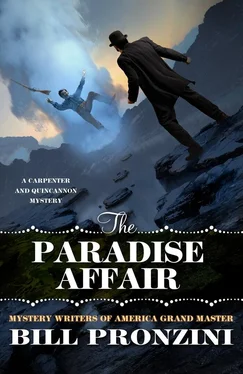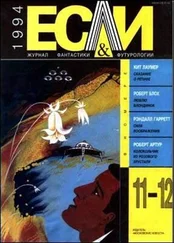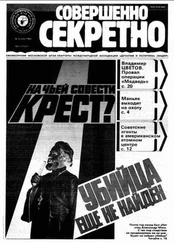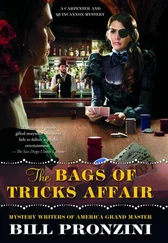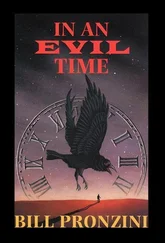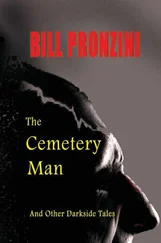“It’s urgent that I speak to Mr. Oakes,” she told him. “Is he here?”
Yes, he was. Apparently he hadn’t arisen yet. When she repeated the urgent need to speak with him, Cheng allowed her to enter the foyer and climbed the staircase to deliver the message.
She had to wait several minutes before Philip Oakes appeared, clad in a wine-red robe, his usually slicked-down sandy hair hastily combed. Eye bags and other sleep marks made him look even more dissipated. “What is it, Mrs. Quincannon? What is so urgent?”
“It’s imperative that I have another look inside the study.”
“Imperative? Imperative? Why?” His expression brightened. “Have you thought of something to prove my uncle’s death was accidental?”
Sabina said evasively, “We’ll discuss that at a later time. May I have that look?”
“Yes. Of course.”
He led her down the hallway to the study door. “Alone again, please,” she said then. “I won’t be more than a few minutes.”
“Very well. As you wish. I’ll be in the parlor.”
She spent no more than fifteen minutes inside the study. Suppositions verified.
In the parlor she said to Philip Oakes, “Now the police need to be summoned.”
“The police? The police?”
“Yes. Captain Jacobsen, if he is available.”
“... Ah! Then you do have proof!”
“I believe I do, but not of an accident. Your uncle, Mr. Oakes, was murdered.”
Captain Jacobsen was available, fortunately, and soon arrived in a police van with two uniformed officers, who waited for him outside. He wore the same clothing as the day before, the only difference being that his bow tie today was magenta, but his manner was more brusque than it had been in the Pritchards’ living room.
“I must say I am surprised that you involved yourself in this matter, Mrs. Quincannon.”
“I did so at Mr. Oakes’s request. And not because I expected to reach a conclusion other than yours.”
“But you did reach a different conclusion. According to the telephone call from Mr. Oakes, you contend his uncle’s death was neither suicide nor accident but a case of homicide.”
“With just cause.”
“Do you suspect who committed the crime and how it was done?”
“I do, and I believe I can prove it to your satisfaction.”
“If so,” he said, “I will bow to your superior detective skills.” There was no irony in the words. He seemed not at all resentful of the possibility of having made an incorrect diagnosis, or of being proven wrong by a woman. A rare breed of police officer, Captain Emil Jacobsen.
Philip Oakes and Earlene Thurmond were called for and the four of them gathered in the study. Oakes, dressed now in one of his dapper suits, was excited and eager, if still somewhat skeptical; he had tried unsuccessfully to talk Sabina into explaining while they waited. Miss Thurmond had not been told why the police were summoned — she had remained in her room until Captain Jacobsen’s arrival — but she had to have some idea. Though her demeanor was as phlegmatic as it had been the previous afternoon, there was tension in her movements, her rigid stance.
“You have the floor, Mrs. Quincannon,” the captain said. “Tell us why you believe Gordon Pettibone was murdered.”
“Murdered? Is that what this is all about?” Miss Thurmond’s exclamation was scornful. “The notion is preposterous. He was alone in here with the door and windows bolted.”
“One of the windows was not bolted,” Sabina said.
“That isn’t so, they both were. I told you yesterday that Mr. Oakes and I both checked them.”
Sabina went to the shutter-free window, the others at her heels. “Checked them how? By turning this bolt knob” — she put her fingers on it — “or simply giving the handles a tug? That was Mr. Pettibone’s method of checking the windows in the evenings, wasn’t it?”
“I never paid any attention. But I tell you the bolt on that window was in place when I tested it.”
“It was not in place when he was shot. The two halves were unbolted then, and had been for some time before and after the shooting.”
“That is impossible—”
“No, it isn’t. Unbolted, but held tightly shut by another means from outside.”
“What means?” Philip Oakes demanded. “What means?”
John, in Sabina’s place, would have seized the opportunity to indulge his flair for the dramatic and drawn out the explanation, but she had not been born with a theatrical “ham bone.” She believed in being direct and concise. She released the bolt, opened the two halves, and pointed out the mark on the sill. Then she told of the sliver of wood caught atop the one frame, took from her pocket the two wedge-shaped pieces of driftwood, held them up in the palm of her hand.
“The sliver came from this one,” she said, indicating the mark in the larger, blackened piece, “when it was inserted at the top joining of the two halves. The other piece was inserted at the bottom joining, and both were hidden from view in here by the width of the frames. Together they provided a tight temporary seal, one that passed the handle-tugging test.”
The explanation had the desired impression on Captain Jacobsen. “Where did you find them?” he asked.
“In the grass outside,” Sabina said. “Cast away after they were no longer needed.”
“And when was that?”
“That I found them? After you left yesterday morning, Captain.”
“Why were they used in the first place?”
“To permit surreptitious access in the middle of the night.”
“By whom? And for what purpose?”
“By Miss Earlene Thurmond.”
The secretary said with feigned outrage, “Poppycock! How dare you accuse me!”
“It couldn’t be anyone else but you,” Sabina said. “I saw you on the beach Sunday, searching among the driftwood cast up by Saturday night’s storm. You picked up something small and dark — this black wedge-shaped piece.”
“No. I picked up a shell, not a piece of driftwood.”
Sabina ignored the denial. “It was the storm damage to the shutter that gave you the idea, wasn’t it? That is why you acted when you did. You spent much of your time in this room each day, surely not every minute in the company of Mr. Pettibone. It was easy enough for you to unbolt the window when left alone that day, then to go outside and wedge these pieces into the frames.
“Late that night you slipped out, removed the wedges, and climbed in here. Mr. Pettibone caught you and locked the door after entering, then opened the drapes to confirm your method of access. In some fashion during the confrontation you managed to gain possession of his pistol and shot him. Afterward you climbed back out through the window, reinserted the driftwood pieces, rushed to the back stairs and up to your room, and threw on a robe to hide the fact that you were fully dressed — a process that took several minutes. That is why you didn’t appear until after Mr. Oakes broke down the door.”
“You have no proof of any of that.”
Captain Jacobsen fixed the woman with a stern eye. “You deny these accusations, Miss Thurmond?”
“Of course I deny them. What possible purpose could I have for such... such chicanery?”
Sabina said, “The rifling of Mr. Pettibone’s safe.”
Oakes, who had been staring at Miss Thurmond with an admixture of loathing and awe, emitted a bleat of surprise. “What’s that? Safe? There is no safe in here.”
“Yes there is, a well hidden one. Your uncle must have had it installed when the house was built, long before you and Miss Thurmond came to live here. Either she discovered it by accident, or he made the mistake of revealing its presence for reasons of his own. In any event she knew about it and was desperate for something locked inside.”
Читать дальше
